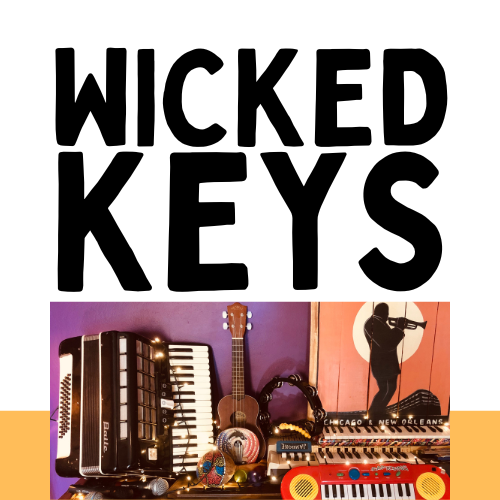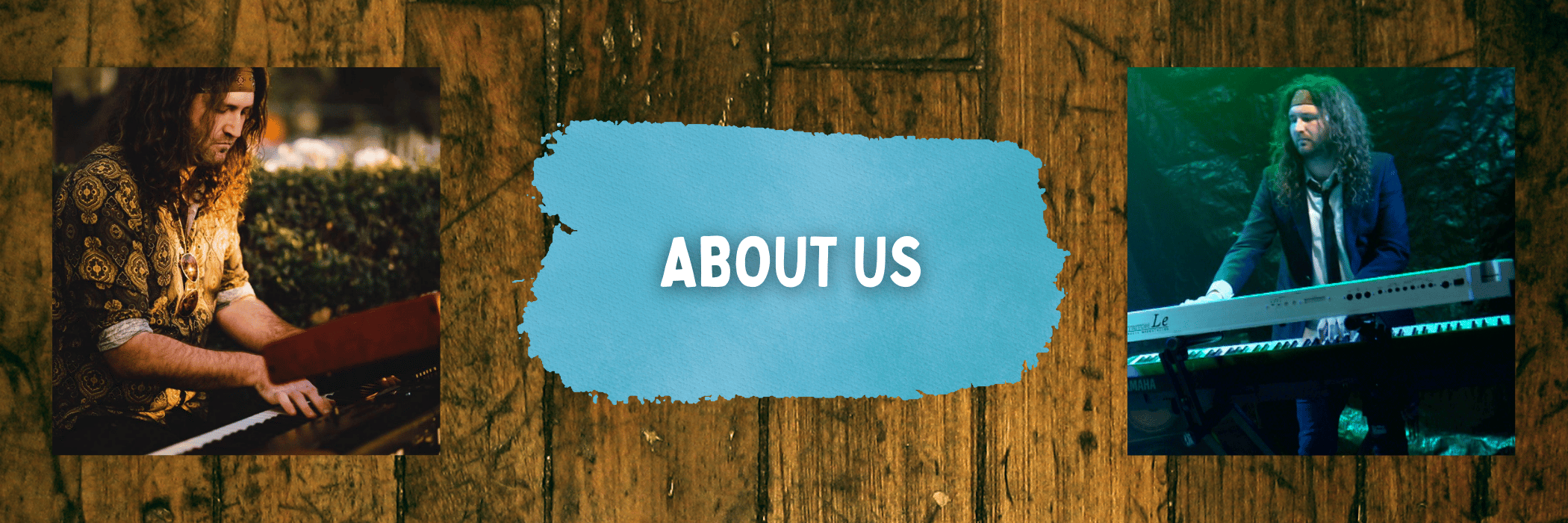
-
Our Founder
Founded by Australian keyboardist and jazz pianist James Baker, Wicked Keys' mission is to provide top-quality and modern teaching resources for forward thinking contemporary piano teachers
Drawing on James’ extensive experience as a performing musician, composer, and educator, Wicked Keys bridges the gap between traditional teaching methods and the unique demands of contemporary playing -
Our Arrangements
Every arrangement from Wicked Keys is designed with contemporary music theory in mind.
From simple beginner friendly leadsheets,to left-hand chordal interpretations in easy piano arrangements, to typical pop/rock voicings like add9s, sus4s, 7s, and maj7s in intermediate arrangements, our music serves as a starter guide to the "juicy stuff"
Advanced pieces go deeper, featuring standard jazz/gospel voicings and passing chords to challenge and inspire even seasoned players. -
Our Approach to Contemporary Theory
We place chord theory and improvisation at the center of everything - contemporary playing is all about improvisation and interpretation rather than "playing the notes"
Our charts include chord symbols, encouraging players to use the written music as a rough guide and embrace the freedom to interpret and improvise
This philosophy ensures that every musician can bring their unique voice to their performance - because at Wicked Keys, creativity and expression are key
James Baker

Does James actually know what he’s talking about?
Playing professionally since the age of 15, James has been immersed in music for over 20 years on stage, in the studio, and in the orchestra pit
A versatile and accomplished musician, his career spans multiple disciplines and countless venues worldwide
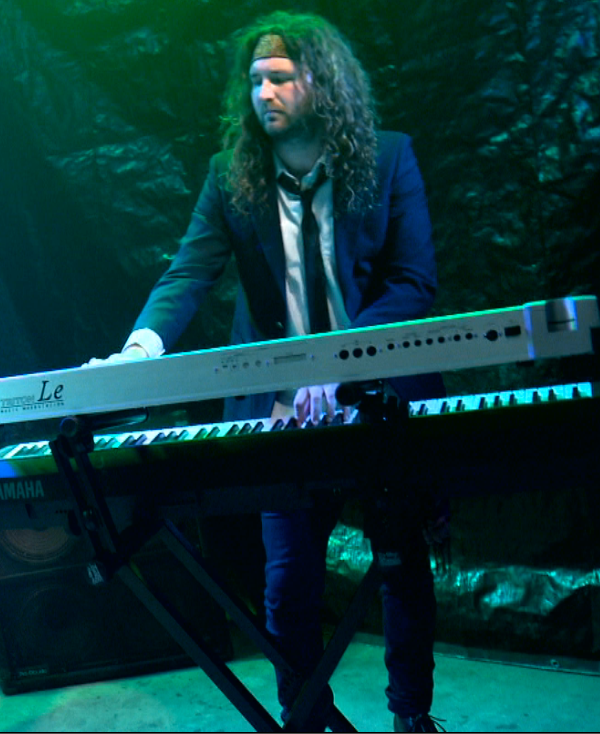
Beginnings:
James’ passion for piano began at age 12 - after convincing his parents, he started traditional lessons but quickly realized the limitations of “reading the dots” in modern music. Taking matters into his own hands, he taught himself to play by ear using CDs and online chord sheets.
By age 15, James was already performing regularly at local café's and landed his first gig as a rehearsal pianist and keyboardist for the musical RENT. His talents saw him progress quickly, becoming assistant musical director for Beauty and the Beast at 16 and musical director and band leader for High School Musical at 17—all while cutting his teeth in the pub rock scene with his first covers band, "Good Time Charlie."
By 18, he was regularly gigging in duo and band situations, and working regularly as a session musician in recording studios.
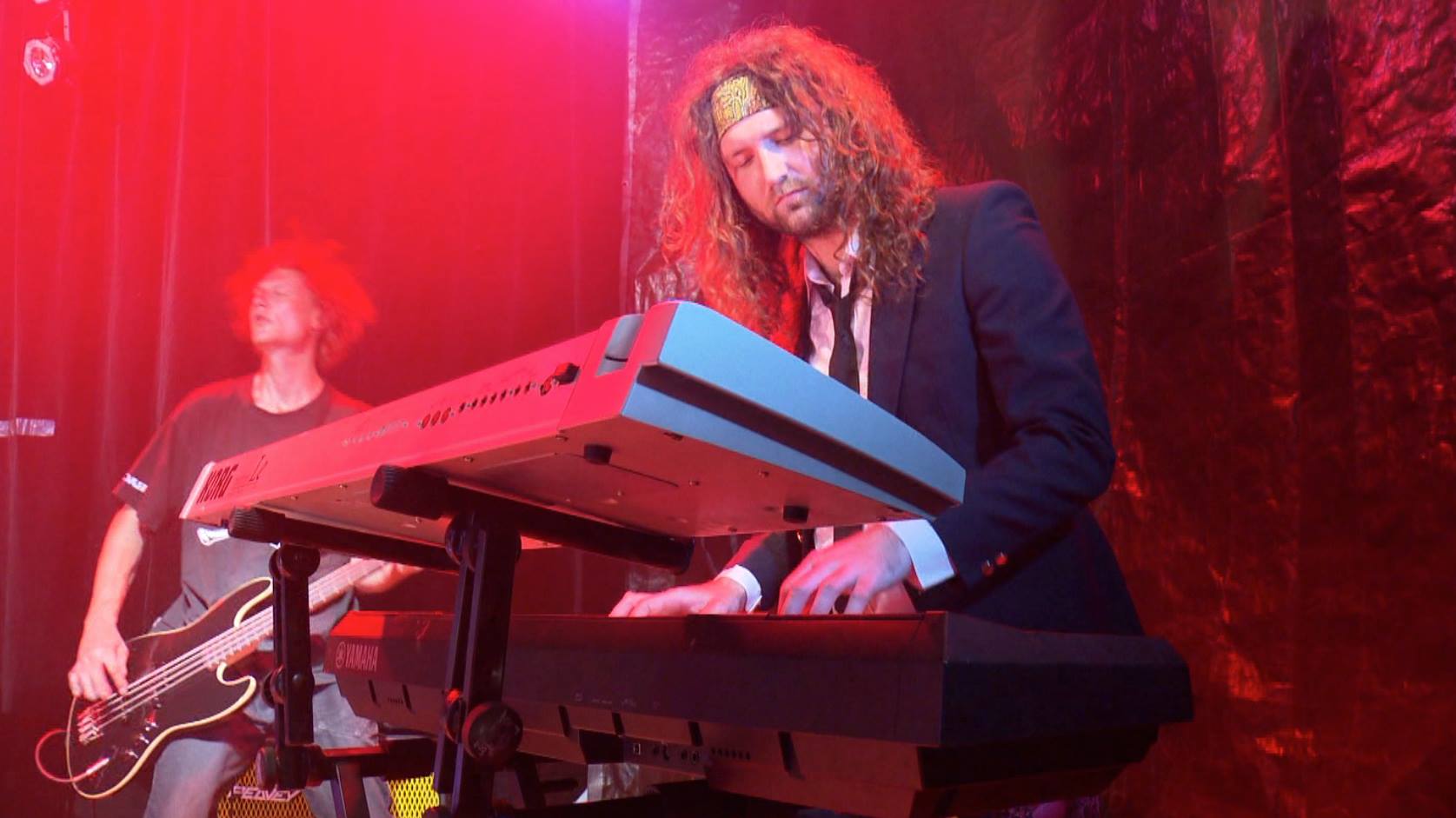
Building On Success
After honing his skills in musical theatre, live gigs, and the studio, James moved from Wagga Wagga to Melbourne to study at NMIT (now Melbourne Polytechnic), where he took short courses under esteemed musicians Enio Pozzebon, Marina Kostromin, Jack Pantazis, and Darren Wicks. It was there he discovered a love for jazz harmony and gospel music, which would go on to influence his distinctive style.
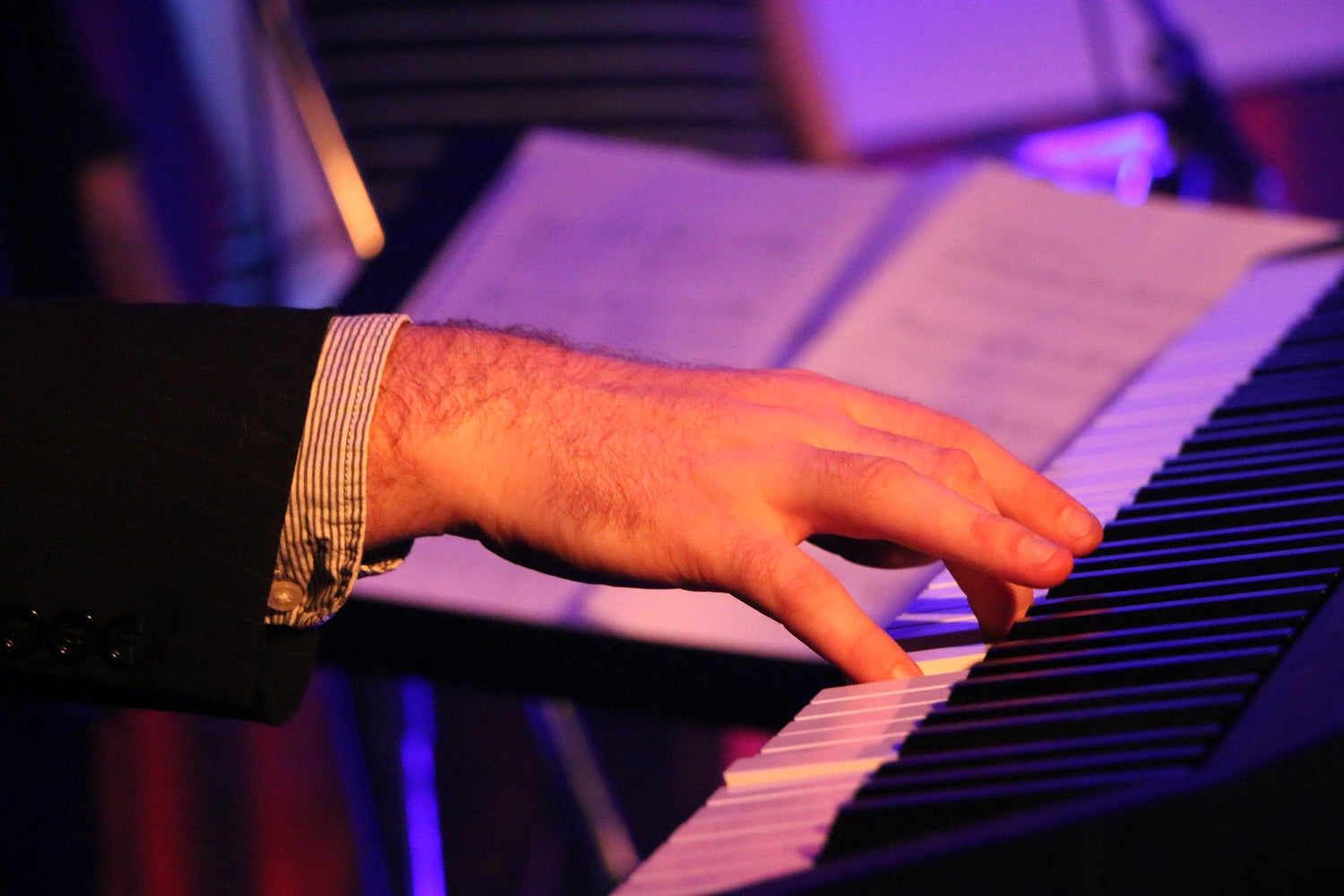
While still a student, James received a Green Room Award for Musical Direction and performed with his musical comedy group at the Melbourne International Comedy Festival. This success led them to the Edinburgh Festival Fringe, where they played to sold-out crowds at the prestigious Gilded Balloon venue.
Recognizing the value of hands-on experience, James made the decision to leave his studies early to pursue professional opportunities and establish himself as a full-time musician across live performances, recording sessions, theatre productions, and cabaret shows.
Since leaving NMIT James has had a hugely successful career as a hired gun session musician, and developed a fully booked teaching studio focusing on contemporary music and modern piano
Since 2015
Work In Schools
In addition to running a fully booked teaching studio James has also worked extensively as a piano teacher and instrumentalist with the Catholic Education Diocese of Wagga Wagga at both Mater Dei Catholic College and Kildare Catholic College
James' work with the colleges has involved private 1 on 1 piano tuition, accompanying school choirs, conducting stage band rehearsals and performances, HSC accompanying and band leading for students final performance exams, and playing piano plus band leading several musicals including:
Back To The 80's
Back To The 90's
Matilda
Hairspray
We Will Rock You
High School Musical
Work In The World
James continues to be an active performing musician working as a hired gun for wedding and corporate bands (Groove Factorie, Baker Boys Band, Miss Nancy), a session musician for theatre and festival shows (Robbie Mortimer, An Evening With Elton, A Night In Nashville), a session musician in recording studios (Anonymous George, Jess Crossman, James Keith) and as a regular contributor on Triple M Riverina's Breakfast with Jamie and Leigh's "Friday Live" segment - breaking the news of the week down over classic songs
More Than Your Average Musician
James' varied career has seen him become an incredibly versatile and flexible musician with a strong work ethic, and a passion for sharing his love of the instrument
A Modern Approach to Piano Education
James specializes in pop, rock, jazz, and musical theatre, offering a fresh perspective on piano education. His teaching emphasizes practical chord theory, scale/chord shortcuts, improvisation, and interpretation—all tailored to modern music. Whether you’re looking to master “reading the dots” or expand your creative expression, James equips his students with the tools to succeed in today’s music landscape.
James has taken his unique teaching approach and developed all of the educational materials for Wicked Keys

